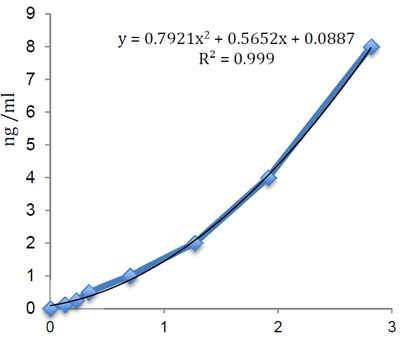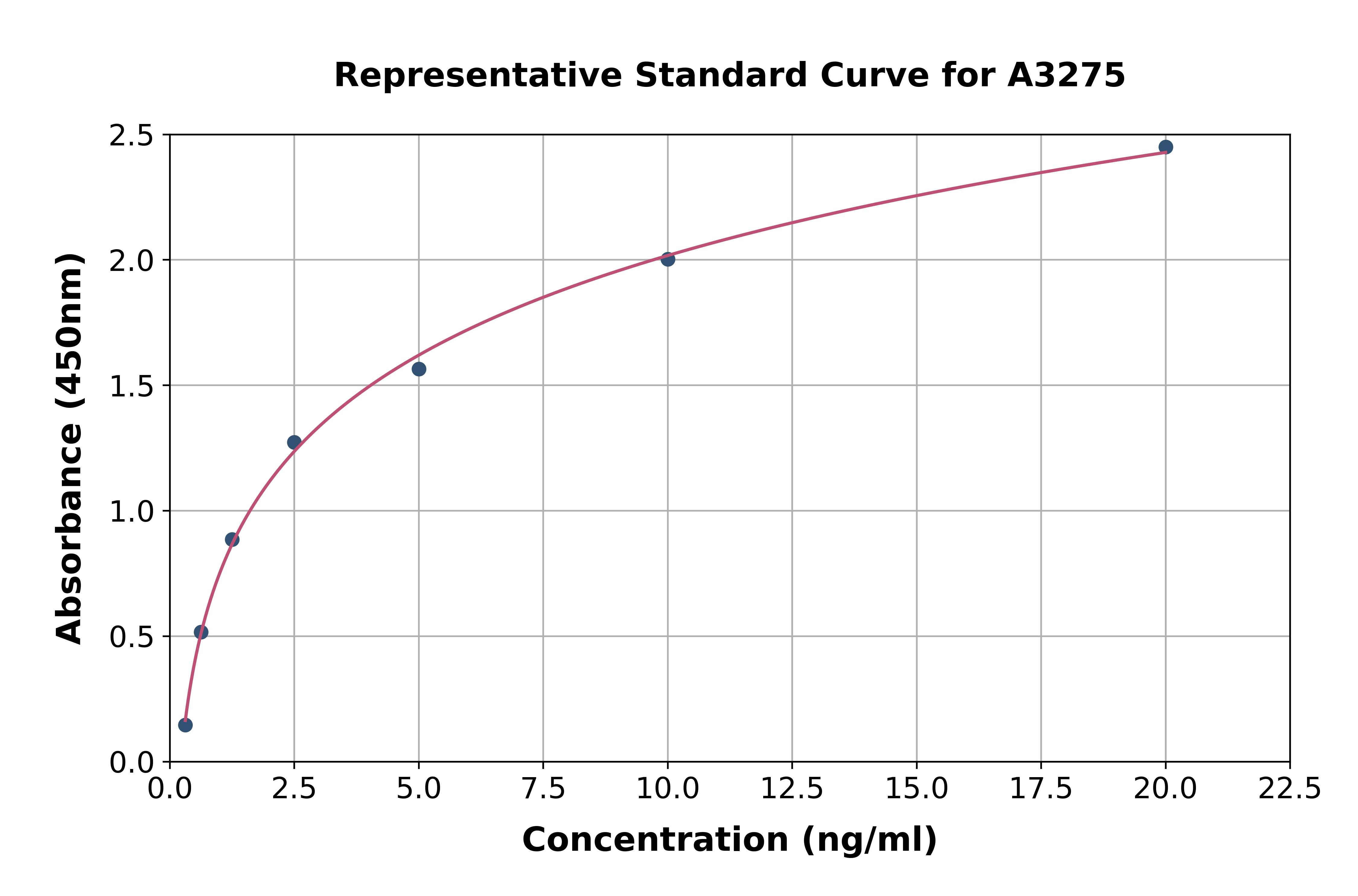
Standard Curve
Resistin (human) ELISA Kit
AG-45A-0023Y
ReactivityHuman
Product group Assays
Overview
- SupplierAdipoGen Life Sciences
- Product NameResistin (human) ELISA Kit
- Delivery Days Customer10
- ApplicationsELISA
- Assay Detection Range0.125 to 8ng/ml
- Assay Sensitivity100pg/ml
- CertificationResearch Use Only
- Protein IDQ9HD89
- Protein NameResistin
- Scientific DescriptionELISA Assay. Detects human resistin. Does not cross-react with mouse resistin, rat resistin, human RELM-beta, mouse RELM-alpha, mouse RELM-beta, rat RELM-alpha, human leptin or human adiponectin. Colorimetric assay. Sample Types: Cell Culture Supernatant, Plasma, Serum. Range: 0.125 to 8ng/ml. Sensitivity: 100pg/ml. Resistin (FIZZ3; ADSF; Adipose tissue-specific secretory factor) is a 12.5kDa cysteine-rich adipocytokine. In rodents, increased resistin-levels impair insulin action, while genetic ablation or down-regulation of the resistin gene improves insulin sensitivity. In humans most reports identified inflammatory cells and bone marrow-derived cells as the main source of resistin, indicating a role in inflammatory responses. Plasma resistin levels were shown to be associated with C-reactive protein (CRP), inflammatory bowel disease, Crohns disease, atherosclerosis and acute pancreatitis. Atherosclerosis and obesity are increasingly viewed as chronic inflammatory conditions. Circulating resistin levels were reported to be increased in obesity and diabetes. - Resistin (FIZZ3; ADSF; Adipose tissue-specific secretory factor) is a 12.5kDa cysteine-rich adipocytokine. In rodents, increased resistin-levels impair insulin action, while genetic ablation or down-regulation of the resistin gene improves insulin sensitivity. In humans most reports identified inflammatory cells and bone marrow-derived cells as the main source of resistin, indicating a role in inflammatory responses. Plasma resistin levels were shown to be associated with C-reactive protein (CRP), inflammatory bowel disease, Crohns disease, atherosclerosis and acute pancreatitis. Atherosclerosis and obesity are increasingly viewed as chronic inflammatory conditions. Circulating resistin levels were reported to be increased in obesity and diabetes.
- ReactivityHuman
- Storage Instruction2°C to 8°C
- UNSPSC41116100
- SpeciesHuman






